C-PACE Momentum is Building
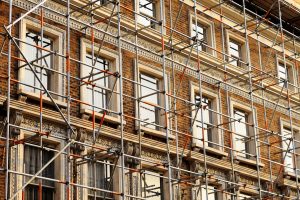 We are excited to announce that there has been a lot of C-PACE movement in Virginia over the past couple of months. The summary below provides an overview of the key highlights. Stay tuned for more information coming soon as C-PACE momentum is building across the Commonwealth.
We are excited to announce that there has been a lot of C-PACE movement in Virginia over the past couple of months. The summary below provides an overview of the key highlights. Stay tuned for more information coming soon as C-PACE momentum is building across the Commonwealth.
Attorney General Opinion
In response to a request from Loudoun County’s Attorney, the Virginia Office of the Attorney General issued an Advisory Opinion on the Commonwealth’s C-PACE law on February 1, 2019. The opinion clarifies two key issues: 1) local governments may authorize capital providers or third-party program administrators to perform billing and collecting of C-PACE loan payments, and 2) localities may assign rights to capital providers to record and enforce the voluntary special assessment liens that underlie C-PACE deals in the case of defaults. The full letter can be viewed here.
Loudoun County
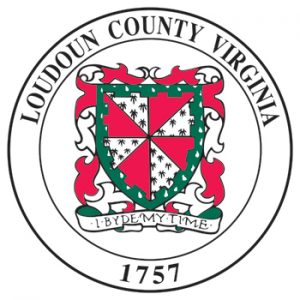 Since the release of the Attorney General’s Advisory Opinion, Loudoun County has been moving ahead at full force. The Board of Supervisors approved the County’s ordinance on February 21st. Now the County is in the procurement process for a third-party program administrator. The RFP is in development and is currently on schedule to be released later this month.
Since the release of the Attorney General’s Advisory Opinion, Loudoun County has been moving ahead at full force. The Board of Supervisors approved the County’s ordinance on February 21st. Now the County is in the procurement process for a third-party program administrator. The RFP is in development and is currently on schedule to be released later this month.
Fairfax County
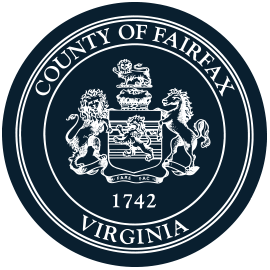 Back in January of this year, the VAEEC participated on the Fairfax County C-PACE Stakeholder Group to provide feedback on the County’s draft ordinance. Since the passage of SB 1559, the County plans to add resiliency measures to this ordinance, which is now scheduled to be considered by the Board of Supervisors on March 19th.
Back in January of this year, the VAEEC participated on the Fairfax County C-PACE Stakeholder Group to provide feedback on the County’s draft ordinance. Since the passage of SB 1559, the County plans to add resiliency measures to this ordinance, which is now scheduled to be considered by the Board of Supervisors on March 19th.
Hampton Roads
The Virginia Energy Efficiency Council partnered with the Hampton Roads Chamber of Commerce, the Mid-Atlantic PACE Alliance, Sustainable Real Estate Solutions (SRS), Viridiant, and the Virginia PACE Authority (VPA) to host a C-PACE workshop for the Hampton Roads region. This was one of our most attended C-PACE events to date, with over 50 people present. The room consisted of representatives from the Cities of Norfolk and Portsmouth, along with area developers, property owners, contractors, engineers, and architects.
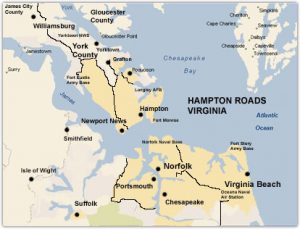
Speakers included Abby Johnson (VPA), City Councilmember Andria McClellan (Norfolk), Jessica Greene (VAEEC), Rob McRaney (Viridiant), and Scott Dicke (SRS). Topics covered included the value proposition of C-PACE for the Hampton Roads region, a history of C-PACE in Virginia, program administration basics, case studies, and action steps to bring C-PACE to the area. The full presentation can be viewed here.
Along with spreading the word about C-PACE, participants were encouraged to contact their local officials to urge the adoption of a C-PACE program. This includes contacting city councilmembers via phone, email, or by submitting letters of support. The VAEEC has created template letters of support that interested property owners, developers, or contractors can use to send to their local officials. Over the course of the past few years, the VAEEC has seen how constituent support and outreach plays a critical role in getting localities to move forward with developing a program.
If you would like to submit a letter to your local officials, the templates can be found below. Contact Jessica Greene (jessica@vaeec.org) with any questions.
2019 General Assembly: passage of two C-PACE bills
Senate Bill 1559 (Sen. Lynwood Lewis) was introduced to amend the current Commercial Property Assessed Clean Energy (C-PACE) statute to add “shoreline resiliency” to the list of projects that can be financed using C-PACE. VAEEC members Abby Johnson of the Virginia PACE Authority and Attorney Bill Nusbaum, along with Cliff Kellogg, drafted proposed amendments to expand the bill’s reach to cover all resiliency improvements as well as stormwater management measures. State staff also contributed language modifying the stormwater management reference by adding “with a preference for natural or nature-based features and living shorelines”. Further amendments also clarified the language around the need for a local government to specify a “maximum aggregate dollar amount” financeable under a C-PACE program in a local ordinance. In the amended version, a cap on total dollars allowed by a program would only be required if public funds were utilized. By contrast, if a C-PACE project were privately financed, then only a total project cap would be needed. The House approved the bill 99-0, and it was signed by the President of the Senate on February 22nd as SB1559ER.
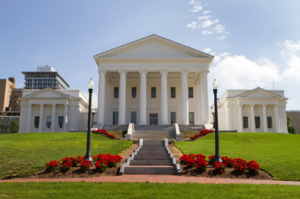 Senate Bill 1400 (Sen. J. Chapman Petersen) was introduced to add stormwater management to the list of projects that could be financed using C-PACE. Initially, this bill also authorized localities to establish Residential Property Assessed Clean Energy (R-PACE) financing; however, this language was stricken from the bill. By February 20th, the bill unanimously passed the House and the Senate to allow for C-PACE financing of stormwater management.
Senate Bill 1400 (Sen. J. Chapman Petersen) was introduced to add stormwater management to the list of projects that could be financed using C-PACE. Initially, this bill also authorized localities to establish Residential Property Assessed Clean Energy (R-PACE) financing; however, this language was stricken from the bill. By February 20th, the bill unanimously passed the House and the Senate to allow for C-PACE financing of stormwater management.
Both bills are now headed to the Governor’s desk for signature, and the new amendments will become effective on July 1, 2019. We hope that by making financing of resiliency and stormwater improvements available, more localities will adopt a C-PACE ordinance, thus making energy saving and renewable energy benefits of C-PACE more broadly available across Virginia.
We are excited to see such progress happening within these past few months and look forward to seeing more C-PACE programs come online across Virginia. For more information about C-PACE, check out our webpage, vaeec.org/PACE.
